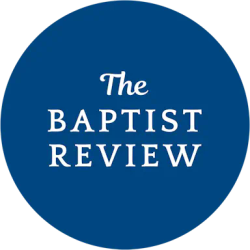In just a couple of weeks, messengers from Baptist churches across the nation will gather in Indianapolis, Indiana, for the 2024 annual meeting of the Southern Baptist Convention. While there are many items on the agenda, the upcoming vote on the role of women in pastoral leadership is certainly the most significant. Many articles have been written about the history of SBC amendments, the nature of SBC cooperation, and the nuances of the Law Amendment (consider these two articles by Rob Collingsworth and Nathan Loudin, respectively).
My aim in this article is not to rehash what has already been said but to help my complementarian brothers and sisters see that this vote is fundamentally a doctrinal decision that will alter our cooperation for the future. The Law Amendment has its critics, but their arguments often discourage support despite affirming the complementarian doctrine it represents. I think this is a miscalculation of the cultural moment in which we stand. I will be voting for the Law Amendment for the following reasons:
1. The vote will likely cause separation either way
The role of women in pastoral ministry is not a new issue for our convention. In 1999, messengers at the annual meeting in Atlanta moved to review the Baptist Faith and Message, leading to the adoption of the Baptist Faith and Message 2000 at the convention in Orlando the following year. Following its adoption, the Baptist General Convention of Texas (now called “Texas Baptists”) refused to recognize the BFM 2000 on several theological grounds, but chief among them was the added clarity on the pastoral role being restricted to men and the submission of the wife to her husband under the section entitled, “The Family.”
During this controversy surrounding the adoption of the BFM 2000, Texas Baptist leaders, including BGCT president Clyde Glazener, criticized the confession’s statement on family as “Neanderthal.” He argued for endorsing the 1963 statement, “because it does not include barbs about women being subservient.” Subsequent to these remarks, the Texas Baptists made constitutional amendments toward the inclusion of other like minded Baptists from neighboring states who felt that the updated confession’s complementarian stance did not represent their convictions.
As we sit here, twenty-four years after the adoption of the BFM 2000 in Orlando, the state convention of Texas Baptists, while still part of the Southern Baptist Convention, is now also aligned with the Baptist World Alliance, which has broad tolerance for egalitarianism and from which the SBC broke fellowship in 2004. In recent weeks, the Executive Board of GC2, another network of the Texas Baptists, has created a study group concerning the acceptance of out-of-state churches that want to affiliate with it in the inevitable fallout from the acceptance of the Law Amendment.
But if we consider only the side of the egalitarians within the convention, we will fail to see the bigger picture. The Law Amendment, although presented by Mike Law, senior pastor of Arlington Baptist Church in Virginia, represents a constituency of people who are unashamedly complementarian. Let’s not forget that the same convention that affirmed this amendment in the first vote also voted to disfellowship with Rick Warren’s Saddleback Church and two other egalitarian churches. The amendment has broad appeal across the association of churches.
Additionally, Pastor Law is reflecting a viewpoint that I and many others share. In addressing the question of why this amendment was brought, Law states:
I want to see our Convention stand united in the truth, because I love the SBC . . . I see this issue as a pressing challenge to our future unity and faithfulness as a Convention. For a long time, contrary to our Convention’s statement of faith, women have served as pastors in our Convention . . . The problem is clear. The Bible is clear. Our Confession is clear. Now it is time for our Constitution to be clear, which will help secure our unity in the truth as a Convention . . . This effort is just a group of concerned Southern Baptist friends who care about the Convention’s future.
The Law Amendment is reflecting something of a boiling point of tensions between egalitarian and complementarian groups within the SBC which have, up to this point, co-existed. However, complementarian pastors are beginning to wonder if the tent of the SBC is so large that there’s no room for doctrinal fidelity. The Cooperative Program has been a tremendous blessing for the spread of the gospel and the planting of churches among the nations, but what is the nature of the churches that we’re planting?
Law continues,
For his glory, God has given men and women differing roles in the life of HIS church. As Martin Luther once argued, we are to pursue peace if possible, and truth at all costs. If “unity” is embraced at the expense of sound doctrine, then we are accepting a lie for the sake of peace. Unity then has become an idol. Those who insist that there is NO difference between men and women in role and function cut against the grain of the created order and God’s complementary design for those made in his image . . . Rather than embracing a delusion for the sake of unity, we must stand firm on the word of God and do as God says (Is 26:3). Unity, blessed unity, is found when we embrace and exalt the truth, and that is what this amendment does.
The point, when you consider both sides of this debate, becomes very clear. Regardless of how this vote goes, there will likely be a separation that follows. I could not say how quickly that separation will occur or what other factors in Indianapolis might potentially mitigate the separation (i.e. another amendment, a different solution, etc.), but it seems both sides are poised to consider alternative associations.
Which brings me to my second point:
2. To vote “no” is to vote “yes”
Stop me if you’ve heard this before: “I’m as complementarian as they come. I’ve got a list a mile long of all my complementarian bona fides . . . [audience braces] but I’m voting ‘no’ for the most complementarian thing the convention has ever done.” If I’ve read one article that begins this way, I’ve read a thousand. I assume these brothers are genuine in their complementarianism, but what has disheartened me is how quickly, it seems, their complementarian convictions wither when they encounter the slightest hardship. Their solution? Vote no to the amendment and wait until a more perfect solution comes along.
Consider, for example, the latest offering from the newly elected President of the Executive Committee, Jeff Iorg. Dr. Iorg has always been seen as a very peaceable, humble man of integrity and faith. I have no reason to doubt any of that in light of this article. I do, however, disagree wholeheartedly with his position and wish he would reconsider. One issue he raises is, “What happens when a church is removed from the SBC for having a woman pastor?”
Dr. Iorg goes on to describe the fallout of such an event:
The messengers from the church will not be seated (or will be “unseated”) at the annual meeting. Trustees who are members of those churches must change their church membership or resign from SBC entity boards. The IMB cannot appoint missionaries and NAMB cannot fund church plants sponsored by excluded churches. Seminary students endorsed by excluded churches must pay non-SBC tuition (typically twice the amount paid by a Southern Baptist student). SBC entity employees who are required to be members of a Southern Baptist church must move their membership to another church or resign from their job if their church is excluded. GuideStone participants in excluded churches may lose their disability insurance (provided through partnerships with state conventions) and may lose other retirement benefits and protections tied to SBC affiliation . . . Excluded churches can continue to attend the SBC annual meeting as guests, shop at Lifeway, invest through GuideStone and give to Convention causes. In short, they function like non-SBC churches currently do now – presence allowed, business accepted, but participation restricted.
Is this a reason to vote no? This is precisely the point. This line of reasoning has failed to grasp the moment the convention is in and is instead attempting to “keep the peace” by leaving things the way they are.
This fails to consider the reverse point of view: the amendment fails, and complementarian churches leave the convention. The trustees from those churches have to move their membership or resign. Missionaries from those churches move their memberships or come home. Seminary students from those churches change membership or drop out. While acknowledging that the SBC has come to a crossroads, there is a failure on the part of some complementarians to properly acknowledge the kind of crossroads we’re facing.
Dr. Iorg goes on to say that excluding churches over homosexuality, sexual abuse, and racism (also prohibited in the constitution) is not like the Law Amendment because women serving in pastoral roles are not in this same category. These are merely a “debate about interpreting the Bible, not about submitting to its authority.” While agreeing that the SBC is “decidedly complementarian,” he stops short of solidifying the SBC’s complementarity for us and our posterity in perpetuity.
The debate over the approval of the Law Amendment is cloaked in questions about Baptist polity, legal ramifications, and all kinds of other “sky-is-falling” scenarios which may never see the light of day, but at the end of day this is not most basically about any of these things. It is a debate that has been coming to a boil for well over twenty years: is the SBC an association of egalitarian or complementarian churches?
To the complementarians, like Iorg, who will be voting no, all the while insisting that the convention is decidedly complementarian, I would simply ask, “Then why will a vote of yes cause so much consternation, division, and legal catastrophes?” We can’t claim on the one hand that the SBC is an association of churches that is decidedly complementarian, and claim on the other hand that so many egalitarian-leaning congregations will leave if we enshrine complementarianism into our constitution. If there really will be that much fallout as a result of a complementarian decision, then maybe we’ve been sitting on the fence the entire time. I can’t imagine that a “decidedly complementarian” association of churches like we claim to already be would be a happy home for egalitarian churches. So if we really are complementarian, then the fallout should be minimal.
The reality is one we all realize (even if secretly): there are egalitarian (or sympathizing) churches that are a part of the SBC, and this vote is not one where both sides will drop the issue and return to life as normal. It’s decision time for the Southern Baptist Convention: Are we complementarian or egalitarian? An answer of “either,” “neither” or “both” will not suffice. Voting “no” because we don’t have every consequence accounted for is another way of saying, “We’re fine with egalitarianism.” There will never be a time when a motion will be made and all of our bases will be covered. Waiting on that to come is a fool’s errand. Meanwhile a perfectly reasonable approach has come to the fore, proposing that we refuse the money of egalitarian churches and deny them a vote at the annual meeting. To vote no to this is to vote yes to egalitarianism.
Which leads me to my final point:
3. A vote of “yes” will produce long-term health for the convention
As we consider the currently evolving complementarian landscape in and around Southern Baptist circles, what we find is that several options are beginning to emerge that are becoming more appealing than the SBC. First, is the relatively new Association of Churches for Missions & Evangelism. This association affirms an historic baptistic ecclesiology and is decidedly complementarian. It sprung out of the mutual interest of Southern Baptist pastors wanting to evangelize the lost with the good news of Jesus Christ and plant churches that were built on a doctrinally solid foundation.
Second, is Reaching and Teaching International Ministries (RTIM). This is not an association (or convention), but it is a missions helping and equipping agency that comes alongside local churches. So many SBC churches long for simpler days when churches came together to get missionaries on the mission field, and RTIM represents that simplicity.
The point is, there are emerging options for complementarian congregations, and they’re largely comprised of people who were or still are partially in SBC circles! These organizations have been formed, at least in part, by SBC pastors because the SBC’s Cooperative Program no longer presents a compelling interest for church planting and evangelism. One of the most appealing aspects of the missional strategy of the SBC is the Cooperative Program, which is funded by Southern Baptist churches to reach the world for Christ. But if complementarian churches are wondering what kind of churches are being planted, the Cooperative Program loses its luster. In the church that I pastor it has become progressively more difficult, year after year, to answer the concerns of our members, and I know I am not alone.
That being said, for the SBC to affirm doctrinal fidelity here begins building back the trust in a once-prodigious missional association that many feel has now lost its way. As a commitment to biblical truth above all is demonstrated in our convention, other organizations filling in these gaps becomes unnecessary. Our desire should be to hand off the Southern Baptist Convention and a healthy Cooperative Program to our children. If so, that will only happen through a strong commitment to biblical truth. If instead we opt as complementarians to vote with egalitarians because of potential uncertainties, then perhaps the SBC has reached its sunset. As one who was born, raised, baptized in, and currently pastor of a Southern Baptist church, I pray that’s not the case.
In conclusion, I would appeal to my complementarian brothers and sisters who are considering (or have decided on) voting no to the Law Amendment. This vote represents a crossroads for both sides of this debate, and some separation is likely to occur either way. There are likely future obstacles that will come from a vote of yes—some we know, some we don’t, and some we think we know but are not. In all likelihood there will come a day when this amendment will have to be refined, or something will have to be done in order to address subsequent issues. But what concerns me more than having to deal with unforeseen landmines is waiting for a perfect solution to this boiling tension that never comes because the ones who would vote for it are gone.
Editor's Note: As a part of its commitment to fostering conversation within the Southern Baptist Convention, the Baptist Review may publish editorials that espouse viewpoints that are not necessarily shared by the TBR team or other contributors. We welcome submissions for responses and rebuttals to any editorials as we seek to host meaningful conversations about the present and future of our convention.

Join the Baptist Review for our Presidential Forum in Indianapolis on Monday, June 10 at 9pm. Registration is required for attendance.


